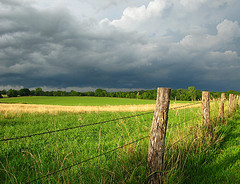September 9, 2025
Browse by Subject
- Defamation (588)
- Copyright (511)
- Legal Threat (507)
- Free Speech (411)
- Blogs (315)
- Section 230 (309)
- Anonymity (301)
- Social Media (297)
- Citizen Journalism (286)
- Newsgathering (286)
- Fair Use (280)
- Criminal (279)
- Journalism (266)
- Access to Gov't Information (242)
- Third-Party Content (239)
- Censorship (230)
- Twitter (229)
- Privacy (213)
- CMLP (211)
- Trademark (189)
- DMCA (162)
- Shield Laws (149)
- Access to Courts (148)
- Prior Restraints (120)
- FOIA (107)
- SLAPP (105)
- Cyberbullying (89)
- Elections and Politics (88)
- Legal Guide (84)
- Recording Others (83)
- User Comments or Submissions (82)
- Terms and Conditions (80)
- Publication of Private Facts (80)
- Right of Publicity (79)
- Subpoenas (78)
- Advertising (77)
- Consumer Ratings and Reviews (59)
- Intrusion (54)
- False Light (54)
- Student Speech (54)
- Gripe Sites (51)
- Congress (49)
- Hot News Misappropriation (47)
- Resources and Tools (45)
- Open Meetings (43)
- Children (42)
- Linking (41)
- Computer Fraud and Abuse Act (41)
- Obscenity (36)
- Access to Places (35)
- Business Torts (33)
- Identity (33)
- Aggregation (33)
- Trade Secrets (30)
- Trade Libel (25)
- Personal Jurisdiction (24)
- Licensing (24)
- Business Formation (23)
- Taxes (22)
- Sanctions (21)
- Employee Blogs (20)
- Domain Names (19)
- Real Estate (17)
- Retractions and Corrections (15)
- Credentials (15)
- DMLP (13)
- Cyberstalking (13)
- Reviews (11)
- Insurance (11)
- Hate Speech (11)
- Misappropriation (11)
- Establishment Clause (10)
- Government Speech (9)
- Website Design (7)
- Statute of Limitations (4)
- Science (3)
- Patent (2)
Recent Blog Posts
-
11 years 2 months ago
-
11 years 3 months ago
-
11 years 4 months ago
-
11 years 4 months ago
-
11 years 4 months ago
-
11 years 5 months ago
-
11 years 5 months ago
-
11 years 5 months ago
We are looking for contributing authors with expertise in media law, intellectual property, First Amendment, and other related fields to join us as guest bloggers. If you are interested, please contact us for more details.


 Texas State Representative Todd Hunter, R-Corpus Christi, has proposed a "
Texas State Representative Todd Hunter, R-Corpus Christi, has proposed a " I've already written several posts about the overblown predictions
that a
I've already written several posts about the overblown predictions
that a  One overarching theme of the 2012 election season was a struggle with truth. Both campaigns were accused of serial falsehoods, and continuing to spread incorrect information after the truth was reported.
One overarching theme of the 2012 election season was a struggle with truth. Both campaigns were accused of serial falsehoods, and continuing to spread incorrect information after the truth was reported. A federal judge's ruling that a blogger was not covered by Oregon's reporters' shield law
A federal judge's ruling that a blogger was not covered by Oregon's reporters' shield law  Being a journalist in Italy may have occupational hazards, but having to go to prison in your own country because of an article you wrote should not be one of them. However, Italy, a founding Member of both the Council of Europe and the European Union, still punishes defamation through the medium of the press (diffamazione a mezzo stampa) by a prison term.
Being a journalist in Italy may have occupational hazards, but having to go to prison in your own country because of an article you wrote should not be one of them. However, Italy, a founding Member of both the Council of Europe and the European Union, still punishes defamation through the medium of the press (diffamazione a mezzo stampa) by a prison term.
 Google searches employ two features:
Google searches employ two features:  Another day. Another "I created Facebook first" case.
Another day. Another "I created Facebook first" case.
